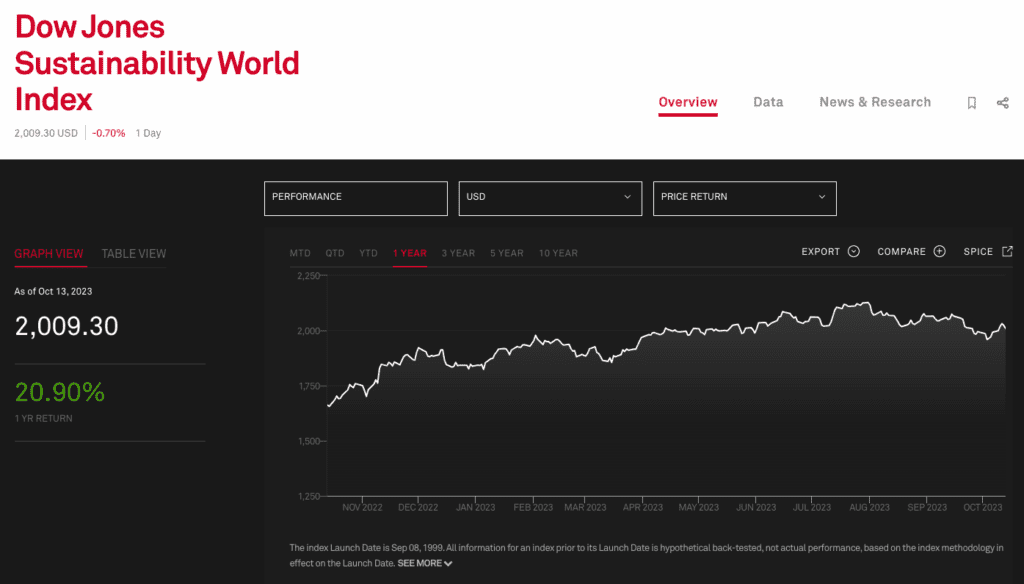In recent years, businesses across Australia have begun setting environmental targets in an effort to limit harm to the environment. This trend is driven by increasing concern over climate change and environmental issues, as well as a growing recognition that being a good corporate citizen can boost a company’s bottom line.
The power lies in consumers and investors
Recent research has shown that companies that prioritise environmental sustainability can see significant financial benefits. With growing community concern about global warming and climate change, many consumers are voting with their wallets. Individuals are withdrawing their support from companies they see as environmentally unsustainable and supporting those with better environmental credentials.
One study by Harvard Business School found that companies that invest in environmentally sustainable practices tend to perform better financially over the long term. This is seen through better stock market performance and higher return on equity.
This is supported by a second study by University of Queensland researchers which found that firms that engage in environmentally sustainable practices are rewarded with better financial performance in the medium and long term as they offer an attractive value proposition to investors concerned with environmental issues.
This adds to a growing body of research that suggests environmental sustainability and financial performance can be complementary. By adopting sustainable practices, companies can enhance their brand, attract investors and build resilience to emerging environmental risks. Evidently, all of which can contribute to long-term financial success.
Australian energy company, AGL Energy is a good example. In 2015, the company announced an emissions reduction target of 50 per cent by 2050. Since then, the company has outperformed its peers with a total shareholder return of 66 per cent compared to the industry average of just 20 per cent.
Your reputation matters
Reputation in this area is becoming increasingly important. A good reputation appeals to customers, investors and employees who value sustainability and are willing to pay a premium for environmentally friendly products and services. Conversely, a bad reputation for environmental responsibility can lead to negative publicity and harm a company’s brand.
A positive reputation enhances a company’s credibility and ability to build trust with stakeholders. Overall, a company’s reputation is a reflection of its values, practices and performance, and can play a significant role in its success or failure.
According to a recent poll conducted by the Lowy Institute in April 2021, eight in ten Australians (or 78 per cent) believe we should set a target to reduce greenhouse gas emissions to net-zero by 2050. This shows there’s strong public support for action to address climate change and reduce greenhouse gas emissions in Australia.
When reputation catches up
One big company operating in Queensland which has suffered reputational and financial damage due to its environmental record is Adani Mining, a subsidiary of the Indian multinational Adani Group. Adani has been seeking to develop a massive coal mining project in the Galilee Basin. However, the project has attracted criticism from environmental groups for its potential impact on the Great Barrier Reef, water resources and climate change.
Opponents of the project argue that as one of the largest coal mines in the world, it would contribute significantly to greenhouse gas emissions. The project has faced legal challenges, protests and opposition from environmental groups and has been a divisive issue in Australian politics.
Adani has been accused of causing environmental damage and breaching environmental regulations in India, and there are concerns that similar issues could arise in Australia if the project proceeds. Despite these concerns, Adani received approvals from the former Australian government in June 2019 to proceed with the project. Reponding to criticism, the company has argued that the project will create jobs and bring economic benefits to the region.
However, the controversy highlights the growing importance of corporate responsibility and sustainability in Australia. The potential reputational and financial risks for companies that prioritise profits over environmental concerns cannot be understated.
Learning from early adopters
Several big Australian mining companies have demonstrated a commitment to environmental sustainability and have set a positive example. This includes BHP – known as the ‘Big Australian’ due to its status as one of the largest and most influential companies nationwide.
BHP has established ambitious targets for reducing its greenhouse gas emissions and improving its environmental performance. It has set a goal to achieve a 30 per cent reduction in operational greenhouse gas emissions by 2030. BHP also hopes to achieve net-zero emissions by 2050.
The company has also committed to investing in renewable energy, reducing water consumption, and improving its management of waste and biodiversity. As such, BHP has been recognized as a leader in sustainability reporting. The company has also been included on the Dow Jones Sustainability Index for several years.

In fact, the company has won numerous awards for its environmental and social performance. These include the 2020 Corporate Citizen of the Year award from the Committee for Economic Development of Australia. All awards of this calibre go some way towards reassuring investors that the company is working to reduce its environmental impact.
Goal setting for the future
Rio Tinto has also been praised for aiming to reduce its carbon footprint and improve sustainability across its operations. Its goals include:
- Reducing greenhouse gas emissions to net-zero by 2050
- Reducing water consumption by 15 per cent by 2030
- Protecting biodiversity by having no net biodiversity loss across its operations by 2025
- Reducing waste by minimising waste generation and maximising resource recovery, and
- Investing in sustainable technologies.
James Lorenz, Climate and Energy Campaigner at the Australian Conservation Foundation congratulated Rio Tinto for setting ambitious goals.
“This is a positive step for the mining industry and shows that it is possible to balance economic growth with environmental responsibility. By committing to reduce its carbon footprint and improve sustainability across its operations, Rio Tinto is setting an example for others to follow.”





